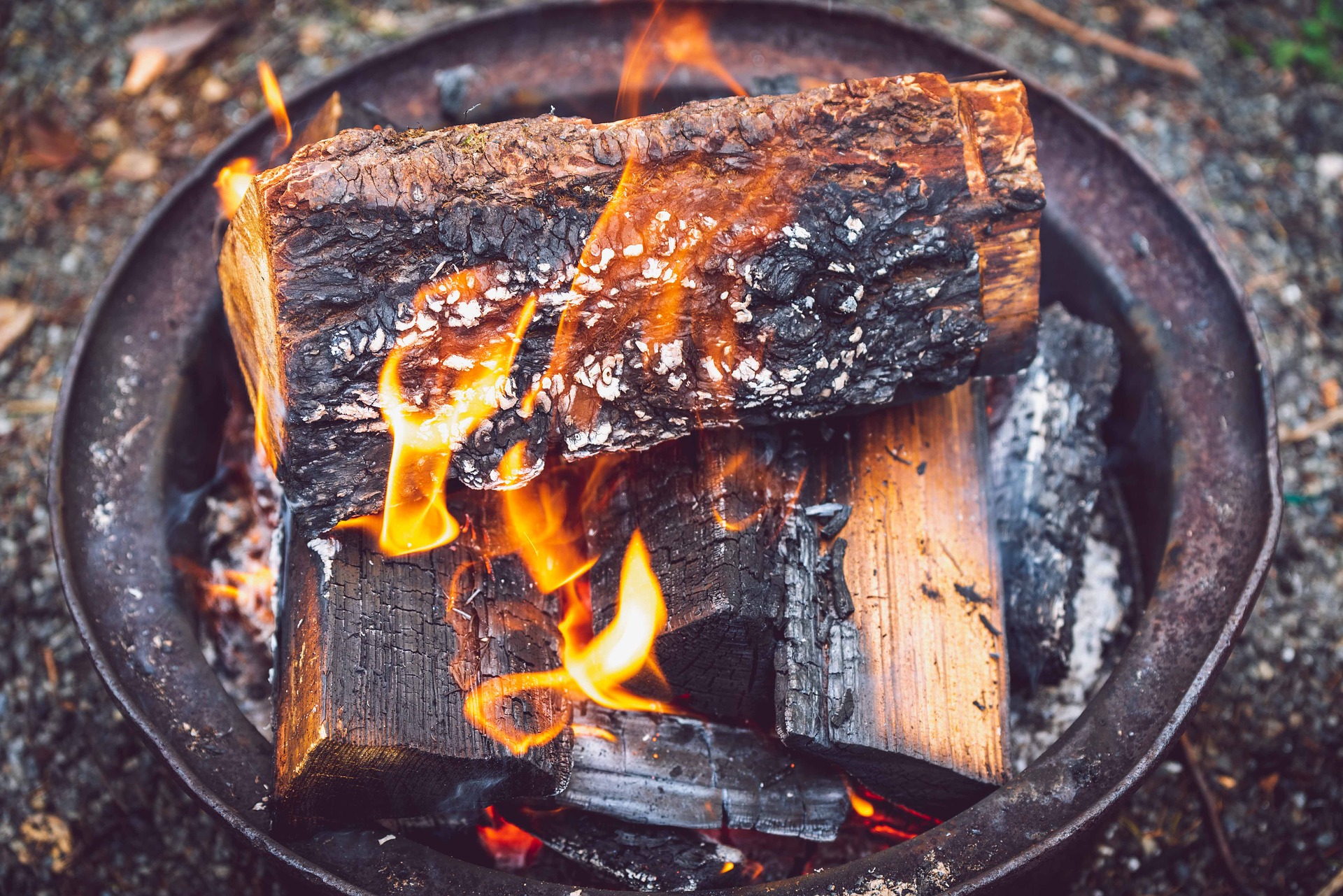Jessica Slater helps BBC Scotland's 'Out of Doors' team consider their environmental impact
SEI's Jessica Slater helps Mark Stephen and Euan McIlwraith consider the environmental impact of lighting their firepit and cooking bacon each Saturday.

“Should I stop lighting the firepit on Saturday mornings? Is it actually bad for the environment?” Those were the questions BBC Scotland ‘Out of Doors’ presenters Mark Stephen and Euan McIlwraith found themselves asking after a listener emailed in asking them to consider climate change. They asked SEI's Jessica Slater to help them understand the impacts of their firepit, and whether they should change their ways.
Jessica is a researcher with SEI York’s Air Pollution and Climate Group, and she addressed the presenters’ questions head on.
“Firepits and other open burning of wood is bad for the environment. It contributes to climate change through releasing carbon dioxide and other harmful pollutants which warm the air.”
She went on to explain that it’s not just the contribution to global warming that is problematic: there are also health impacts.
“Firepits are also a massive source of small particulate matter pollution. These are fine particles that we can breathe in and which get into our lungs and sometimes into our blood stream. They have been linked to a variety of health impacts including lung cancer, heart disease and stroke. They also aggravate asthma, which is a particular issue for small children.”
Mark and Euan were sitting around an outdoor firepit, something many in the UK have chosen to do during the pandemic, as a way of socializing outside. A longer term UK trend is the increase in use of wood burning stoves inside the home. Jessica acknowledged that these are very aesthetically pleasing and really make for a cosy home. However, like outdoor firepits, they are also problematic for the environment and health.
“Indoor wood-burning stoves contribute more to air pollution in the UK than even traffic. They are the single biggest source of particulate matter air pollution in the UK at the moment.”
Returning to the issue of the firepit in front of them, Euan asked what alternatives were available for outdoor cooking which would be more environmentally friendly.
“An electric or gas BBQ would be more efficient and produce less air pollution, but of course if you wanted heat as well you would need to use a separate heater.”
Jessica explained that, if people are going to use a wood-burning fire, there are various things they can do to reduce the amount of air pollution they generate. Mark and Euan were using wood from Euan’s small-holding, which was a relatively sustainable source, but not a choice available to everyone. Things that everyone can do are:
- making sure that the wood is dry – this massively reduces the amount of emissions it releases
- using one of the more efficient designs of firepit or stove
Jessica went on to answer further questions from the presenters and listeners on the use of smokeless coal, and whether they should swap the bacon sizzling away on their firepit for a more environmentally friendly breakfast choice.
Listen to this ‘Out of Doors’ episode on BBC Sounds
(starts at 0:49:08; available until 23 December 2021).
For all media enquiries please contact:
Frances Dixon
frances.dixon@york.ac.uk
+44 (0) 7859147820
@fdisxonSEI
For all media enquiries please contact:

Frances Dixon
Communication Manager
frances.dixon@york.ac.uk
+44 (0) 7859147820
fdisxonSEI
For all media enquiries please contact:
Frances Dixon
frances.dixon@york.ac.uk
+44 (0) 7859147820
@fdisxonSEI